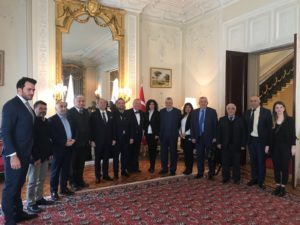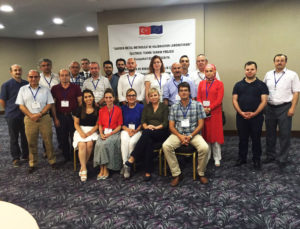
Strengthening the Internal Market
Project is comprised of six components, as follows: Component 1: Improving the strategic, legislative and institutional framework in area of Free Movement of Goods Component 2: Improving the strategic, legislative and institutional framework in area of Free Movement of Services. Component 3: Improving the legislative alignment with the

Increasing Attractiveness, Inclusiveness and Relevance of VET and Adult Education
The overall objective is to improve skill matches of youth and adults in line with labour market needs by increasing access to quality vocational education, training and adult education. The project supports the Ministry of Education and Science of the Republic of Nort Macedonia and related national educational

Technical Assistance for Establishment of Rize Tea Research and Application Centre
Rize has the best reserves of tea in Turkey, however, the SMEs in the Tea region is not qualified enough to compete. Hence, the general purpose of the project was to increase the competitiveness of the tea sector concentrated in Rize and its surroundings. More specifically, it wanted

Technical Assistance for the Operation “Employment and Social Support Services Coordination and Implementation Model for the Integration of Disadvantaged Persons”
The case can be made that disadvantaged persons have both a lack of access and barriers of entry into the labour market. Based on this declaration, the purpose of the operation was to contribute to the sustainable integration of disadvantaged persons into the labour market by establishing and

Technical Assistance for Support to the Local Human Rights Boards and Women’s Rights Awareness
Despite laws being passed in the 1990s to eliminate discrimination against women and a law to protect survivors of domestic violence being enacted in 1998, the country lags behind in implementing its national and international gender equality commitments. Women in Turkey continue to face challenges, with gender-based violence

Technical Assistance for the Operation of Samsun Metals Metrology and Calibration Laboratory
West black sea region of Turkey which the project named TR83 (Samsun, Çorum, Amasya, Tokat) Region, including Sinop, requires to be contributed through socio-economic development. Thus, the purpose of this contract was to strengthen the innovation and quality infrastructure of the metals industry in the TR83 Region. Laboratory’s

